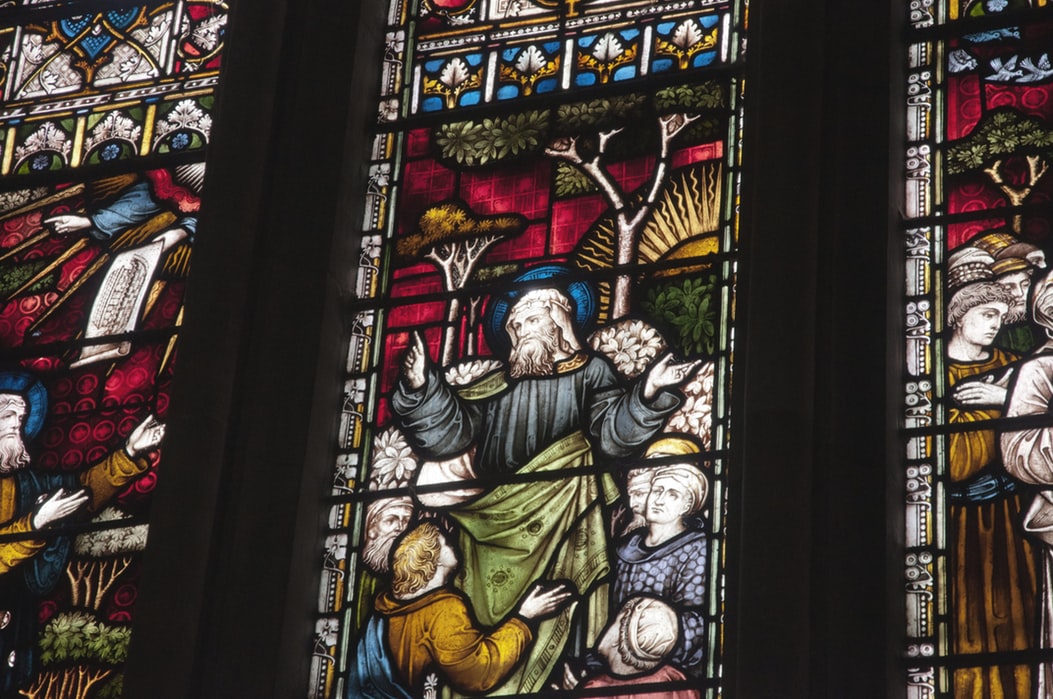When Jesus was beamed up to heaven, the angels promised that the disciples would see him return the same way. (Acts 1, 10-11) The faithful few assumed this event would arrive sooner rather than later, and invested their full efforts in spreading the Gospel, straining to convert as many people as possible before the final judgment. The book of Acts tells us that many people sold their property to finance this venture. (Act 2:44-45) If Jesus was coming back next Tuesday, there was no need for long-term planning. Praise the Lord!
As time dragged on, problems developed.
No doubt those who had given up their jobs and property started to have second thoughts, and question the whole story. The leadership explained that God’s idea of time was not the same as man’s, and things could take a little longer than expected. (2 Peter 3:3-10) Some speculated that the Second Coming would be delayed until all who could be saved, were saved, so everyone needed to work harder at the task of evangelism.
 That created a logistical problem, because new people are being born all the time, and extended the time frame of the prophecy indefinitely.
That created a logistical problem, because new people are being born all the time, and extended the time frame of the prophecy indefinitely.
Some people were quite happy with the imminent return theory and continued to live a life devoid of employment or financial planning. This annoyed St. Paul, who decreed, “If you don’t work, you don’t eat!” (2 Thessalonians, 3:10)
St. Augustine speculated that the Millennium, the thousand years’ reign of Christ mentioned in Revelation (see Chapter 20), coincided with the life of the Christian church. As a result, the coming of the calendar year 1000 found a lot of people, having maximized their merit by giving away all their property, chanting hymns on the hilltops and waiting to be taken away to heaven. We experienced a similar spirit as the year 2000 approached. Some were worried about the computer network, but others were literally waiting for Jesus to come back, despite his personal assurance that no one knew the day or the hour, not even the angels in heaven. The power of myth over fact was amply demonstrated by the fact that almost no one realized that the original calendar reckoning was flawed, and the calendar year 2000 was only a number, not an accurate count of the time that had passed since the birth of Christ.
The Second Coming theme continues to haunt Christians.
It is enshrined in the Apostles’ Creed: “And He shall come again in glory to judge the quick and the dead.” True believers are exhorted to stay on their guard all the time, so they won’t be caught with their pants down when the end comes. There is some wisdom in that, because life is unpredictable and death may come without notice, but it can be dangerous if taken literally, especially for those who think they are better informed than the angels in heaven and know how to hurry things along by forcing the fulfillment of end-time prophecies. The scenario proposed by John Traveler in his article could happen. Similar atrocities have already occurred, fuelled by people who honestly believed that they were furthering God’s plan. God’s reputation has suffered considerably as a result.
Is the return of Christ a myth?
We won’t know for sure until he does return, or until humanity’s story ends in some other way. Certainly, it is a dangerous concept, because it seems to encourage the irresponsibility of apocalyptic thinking. If Jesus is coming back next Tuesday to fix everything, why not max out all the credit cards for donations to religious organizations? Why send the kids to school if all they need to know is in the Bible? Why waste energy on conserving our environment or building a society fit for our grandchildren?
It could be that Jesus, observing our antics, is saying, “Don’t make me come down there!” Or maybe, “Do you really expect me to clean up after you? I’m staying right here until you do something about the mess you made!”






